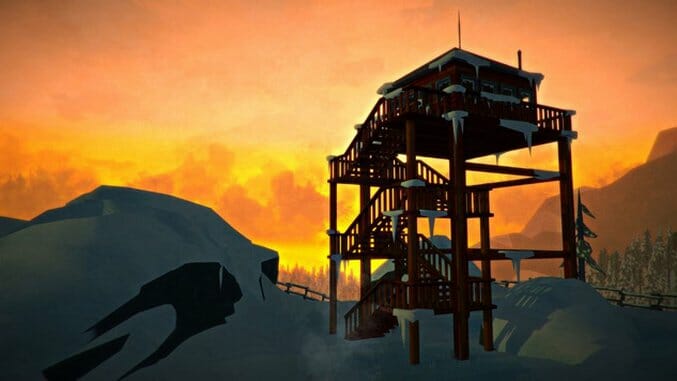The Long Dark Reminds Us That Existence Is An Accomplishment

The Long Dark is one of the most punishing games I’ve ever played. For a Pacific Northwest girl such as myself, it’s less of a game and more of an exercise in anxiety. While I’ve always lived in the slightly milder climates of Washington state, nonetheless I’m familiar with the survival rundown that comes every winter before the mountain passes freeze over. Stock emergency supplies in your car, always wear waterproof and weather appropriate clothing, and never go anywhere without tire chains. The horror stories circulate on social media and the news every year, tales of folks who wandered into a snow storm and never came back. Up in the North, it’s an accepted fate: if you aren’t safe, you will be sorry.
There’s a long history of quantifying the concept of personal growth and progress through game mechanics. Character stats, hit points, skill trees, leveling up: the foundation of “character building” is built into so many games that by now, we barely even notice. It’s a numbers system that doesn’t perfectly parallel our real life experiences, but it’s close enough. It makes sense to us.
The Long Dark is, in some ways, the natural conclusion to this way of designing games. While other games use methods like health, mana and stamina bars to indicate player health and mobility, The Long Dark is pure realism. Players consume food to bulk up their calorie reserves, a unit of energy that must be carefully managed and negotiated with every action, even sleep. Thirst is also measured, and both hunger and dehydration can quickly turn fatal. Injuries and illnesses must be attended to with specific remedies, most of which are scarce or difficult to procure. Body temperature, wind chill and the exact effect of each and every piece of clothing and how it buffers the cold are monitored closely, with hypothermia and exposure a constant risk. At every point the game stresses multiple dangers with every attempt to survive. The objective (especially in the story-free sandbox mode) is merely to keep existing.
I’ve been one of the game’s biggest cheerleaders and strongest supporters, as I believe it is the most authentic survival game to have come out yet. But The Long Dark is brutal. There are times, when running from wolves while starving and suffering from hypothermia, that I feel as winded as if I were doing it in real life. At certain points, when death seems imminent, I’ve run out of resources, and I’m cornered by danger, I find myself asking, why am I playing this, again? This is pointless. I’m always exhausted and hungry and about to die. It’s too hard and it’s not fun.
But then, I turn a corner, and there’s a church a few feet away. And my heart sinks, and rests, and beats a little slower, because it’s the most beautiful thing I’ve ever seen. And I dive into safety.
I forget sometimes that existing in and of itself is an accomplishment. When you’re in the throes of depression, people will tell you, “Oh there’s so much to live for.” But to be honest, there are a lot of good reasons to die, too. The world doles out more pain than most people can handle. The strength of others to endure it does not make us weak. Some of us don’t want to have to struggle so hard. And certainly not to prove a point, or build character, or to show off, or get revenge by living well in spite of the pain. It shouldn’t be so hard to live. We shouldn’t have to fight so hard to live. There are times I allow myself to descend into nihilism, when getting out of bed just feels too hard, when living just to go through the motions of existing and then go to bed to get up the next day and do it all again feels pointless. And it isn’t fun.
The Long Dark is light on social commentary, but it provides a minor lesson I’ll take anyway. I’m the only one setting my objectives. My character progression belongs only to me. I don’t owe anyone anything. Ambition is opt-in, my goals are voluntary. I can stop playing the game at any time.
But most importantly, life is hard, especially if you’re tackling it with a limited toolset. Take a deep breath. Give yourself some credit. Surviving is enough.
Holly Green is the assistant editor of Paste Games and a reporter and semiprofessional photographer. She is also the author of Fry Scores: An Unofficial Guide To Video Game Grub. You can find her work at Gamasutra, Polygon, Unwinnable, and other videogame news publications.
